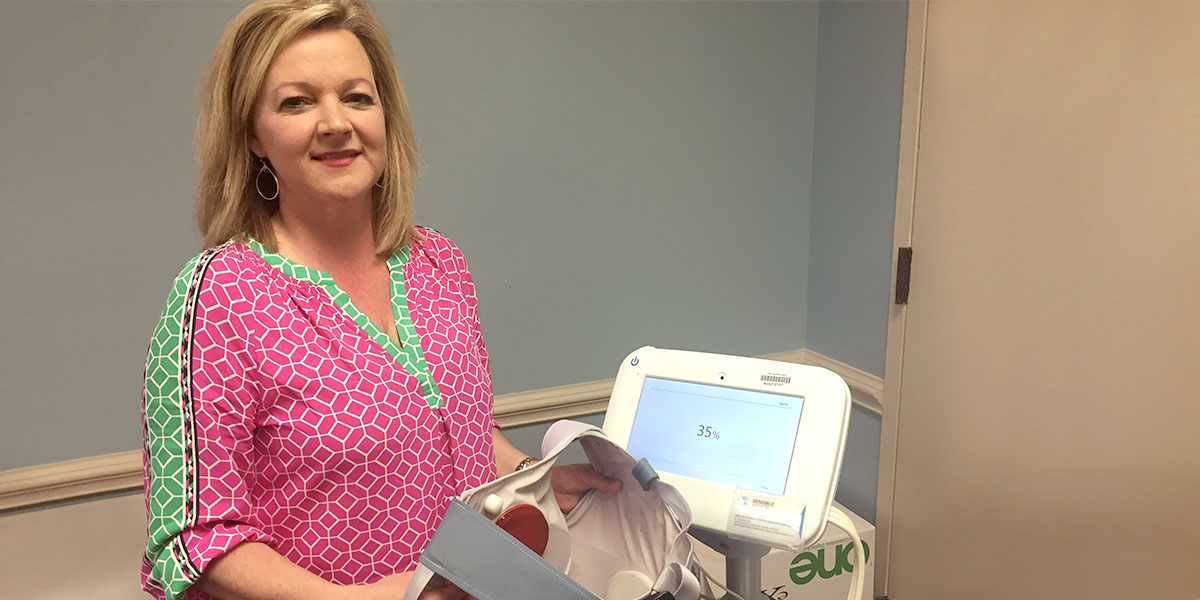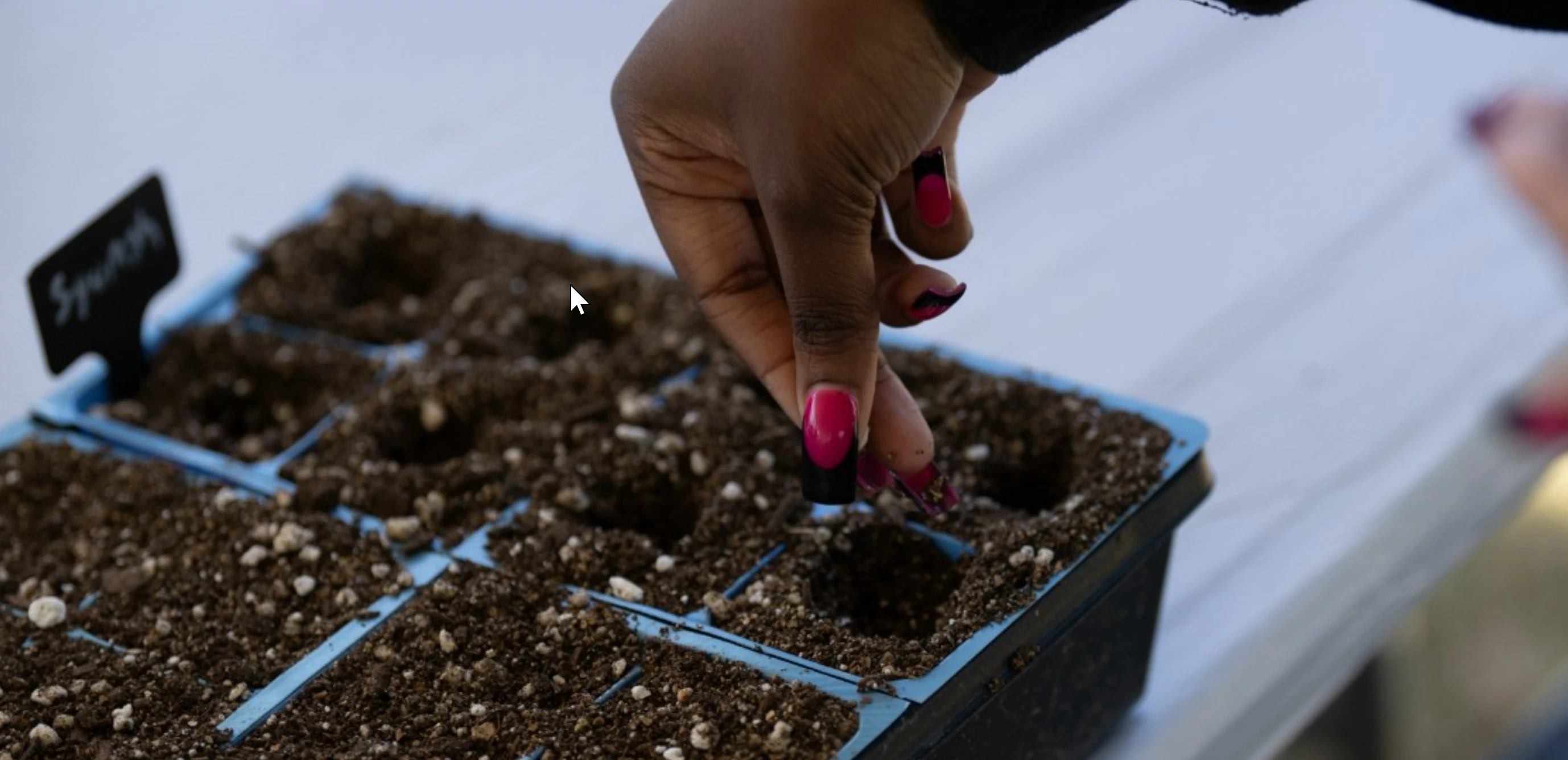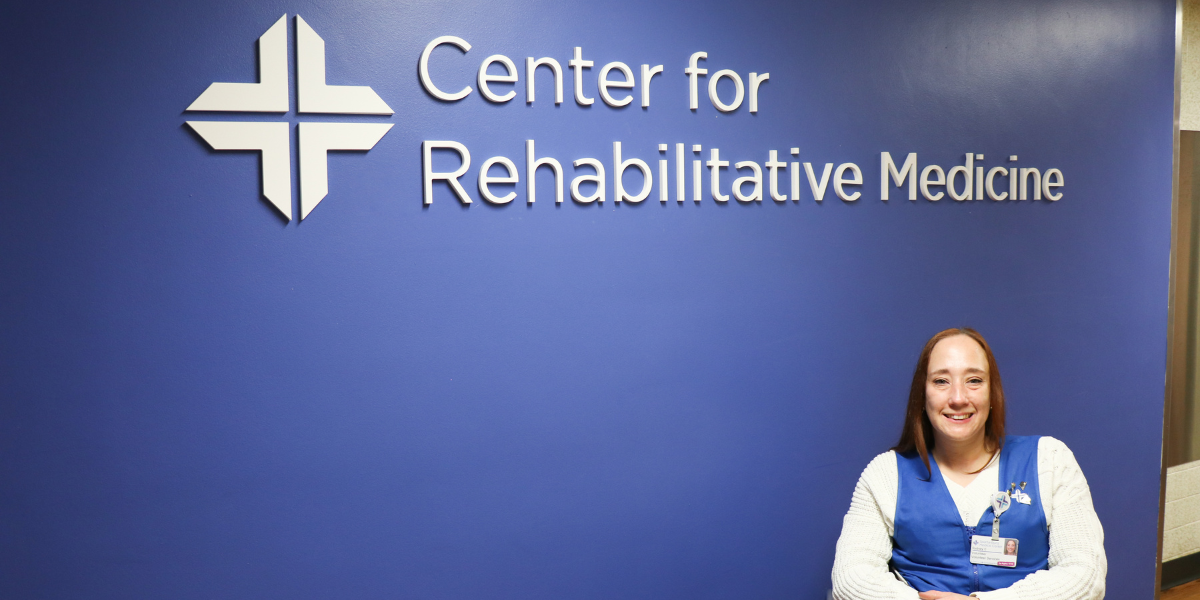
This vest could save lives
Spartanburg Regional Healthcare System is the first provider in South Carolina to implement a non-invasive monitoring procedure that promises to reduce hospital admissions and improve quality of life for heart failure patients.
Made possible by donors to Spartanburg Regional Foundation's Heart Services Fund, SRHS has invested in the ReDS System – a vest with technology that quickly produces a measurement of fluid in the lungs. The ReDS vests are placed on the outside of a patient's clothing, similar to a blood pressure cuff. And like a blood pressure reading, the information collected about fluid build-up should be considered a fifth vital sign for heart failure patients, said Heather Young, RN, manager of the Spartanburg Regional Heart Failure Center.
SRHS has purchased three of the ReDS systems so far. They will be used at the heart failure clinic and in the emergency centers at Spartanburg Medical Center and Pelham Medical Center.
Frequently, when heart failure patients come into an emergency room seeking treatment for shortness of breath or fatigue, they must go through several tests to determine what the problem may be. This may require an overnight hospital stay.
With the ReDS system, a patient can be tested in about 90 seconds to determine whether lung fluid is the likely cause of the problem – no hospitalization necessary. Doctors and nurses can then adjust medications or work with the patient on dietary changes to treat the condition.
Young hopes that Spartanburg Regional will eventually have additional ReDS systems to support the work of home health nurses – allowing for even more timely and consistent information to help patients manage their health.
The goal is to help patients feel better so they can work, take care of demands at home, and enjoy life.
“And when a patient feels bad and has no energy, it's not just tough on them – it affects their family and all the people who help to care for them,” Young said.
The ReDS system is based on radar technology originally used by the Israeli military to search for survivors behind walls in the aftermath of an explosion, according to product trainer Sally McClintock, who has been working with the Spartanburg Regional team. It occurred to a product engineer that the same technology could be employed to “see through walls” of the body to detect fluid levels in patients' lungs.
The technology has begun to catch on among health providers in the United States. The Cone Health Advanced Heart Failure Clinic in North Carolina has reported exciting results since incorporating ReDS into its home health services. In an article in North Carolina Health News, cardiologist Dan Bensimhon reported significantly reduced rates of 30-day hospital readmission rates with patients who were monitored at home with the ReDS device.
Young is hoping to see similar results here in the Upstate.
“Our goal is to keep these patients out of the hospital, so this is really a great tool,” she said.
And it's an example of the many ways that gifts to the Foundation can make a difference for patients, said Dania Beck, director of philanthropy and liaison to the Foundation's Heart Division.
“Through contributions to the Foundation, we are able to expand how we deliver care – and this includes obtaining state-of-the-art technology, such as these ReDS vests,” Beck said. “We strive to always provide the best health care possible for our patients, and philanthropy helps us do that. We are so grateful for the generosity of our donors, who come together to support our Heart Center and the entire health system.”
Learn how you can support heart patients as a donor to Spartanburg Regional Foundation by visiting https://www.regionalfoundation.com/ways-give/heart-disease.











